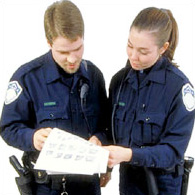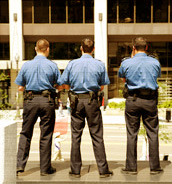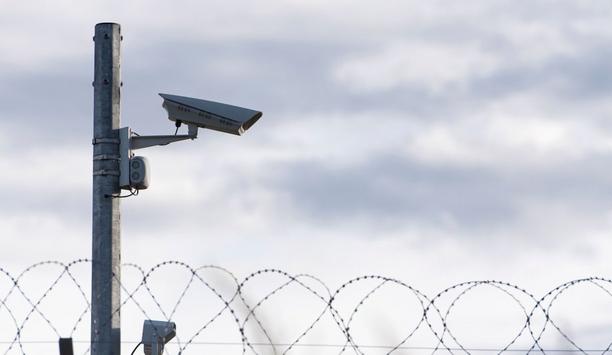 At a time when private security companies are coming under greater public scrutiny following two recent high profile cash snatches, the whole industry is on the verge of collapse, according to security boss, Major Frank Quigley.
At a time when private security companies are coming under greater public scrutiny following two recent high profile cash snatches, the whole industry is on the verge of collapse, according to security boss, Major Frank Quigley.
Major Quigley, a retired Military Police officer who has advised the Ministry of Defence on the establishment of its own security services is a director of a rapidly expanding medium sized security company, Guarding UK Ltd. He said: “The industry has been badly let down by the Government and by the Security Industry Association (SIA).”
Under new legislation anyone working as a security guard was required to have undergone specific approved training, registered and licensed to operate by 20th of March. By March over 99,000 had completed training but only some 33,800 licenses had been issued by the SIA, the Government approved agency tasked with approving training and issuing licenses.
“In November last year only 9,093 licences had been granted so there was little hope of reaching the deadline. Effectively unlicensed guards cannot work and small and medium sized security companies are in danger of going out of business. There are an estimated 38,000 guards still waiting for licences. People will either be unable to work or will be tempted to work illegally, which is not good at a time when the reputation of the industry is at stake.“
"In October last year there were 48,063 people qualified. The industry has done its bit and got a further 51,605 through the qualification process. However, between October and March the SIA has only managed to license an additional 24,686 people. In other words, many of those qualified in October were still not processed by March! This is a damning indictment and it could mean wide unemployment in the industry, property left unguarded and security companies going to the wall. It’s as bad as that!”
 Major Quigley is incensed at a letter circulated by John Saunders, the chief executive of the SIA, to buyers of private security services. “The blame for the backlog is being put on the security companies,” he said. “While some may have been slow to respond the SIA has been bureaucratic, there has been little support, much of their material has been difficult to comprehend and we have had to chase the SIA approved trainers, the certificate awarding authority and the SIA itself, all with little success.”
Major Quigley is incensed at a letter circulated by John Saunders, the chief executive of the SIA, to buyers of private security services. “The blame for the backlog is being put on the security companies,” he said. “While some may have been slow to respond the SIA has been bureaucratic, there has been little support, much of their material has been difficult to comprehend and we have had to chase the SIA approved trainers, the certificate awarding authority and the SIA itself, all with little success.”
Major Quigley remains unconvinced with the timescales set by the SIA. “If the system had been working properly there would have been a capacity to license 168,000 persons, some 48,000 more than estimated. Presently it can take up to six months from training to issue of the certificate.”
As a former senior Military Police officer, Frank Quigley has been responsible for producing the highest levels of training and accreditation for security personnel. "What is needed here is a sense of realism. The SIA needs to understand the problems encountered by the private security service suppliers, especially the smaller and medium sized organisations and it needs to provide a superior support service."
Security officers are in the main honest, reliable and above reproach. Many are now in danger of losing their jobs. The companies employing them need help, better guidance and encouragement – not threats. The SIA needs to accept part of the responsibility of the failures of the system to meet targets and Government must ensure that measures are taken to ensure that a significant part of the private security industry is not declared illegal.
“We all agree that training and certification is desirable. But let’s be realistic about timescales and provide better support for the employers to meet the requirements. We need to manage and enhance the reputation of the industry. At the moment we are in danger of losing public confidence."
“I have written to Hazel Blears, the Home Office minister and to John Saunders at the SIA to highlight the consequences of the deficiencies in the system. I am still waiting for their replies.”

















